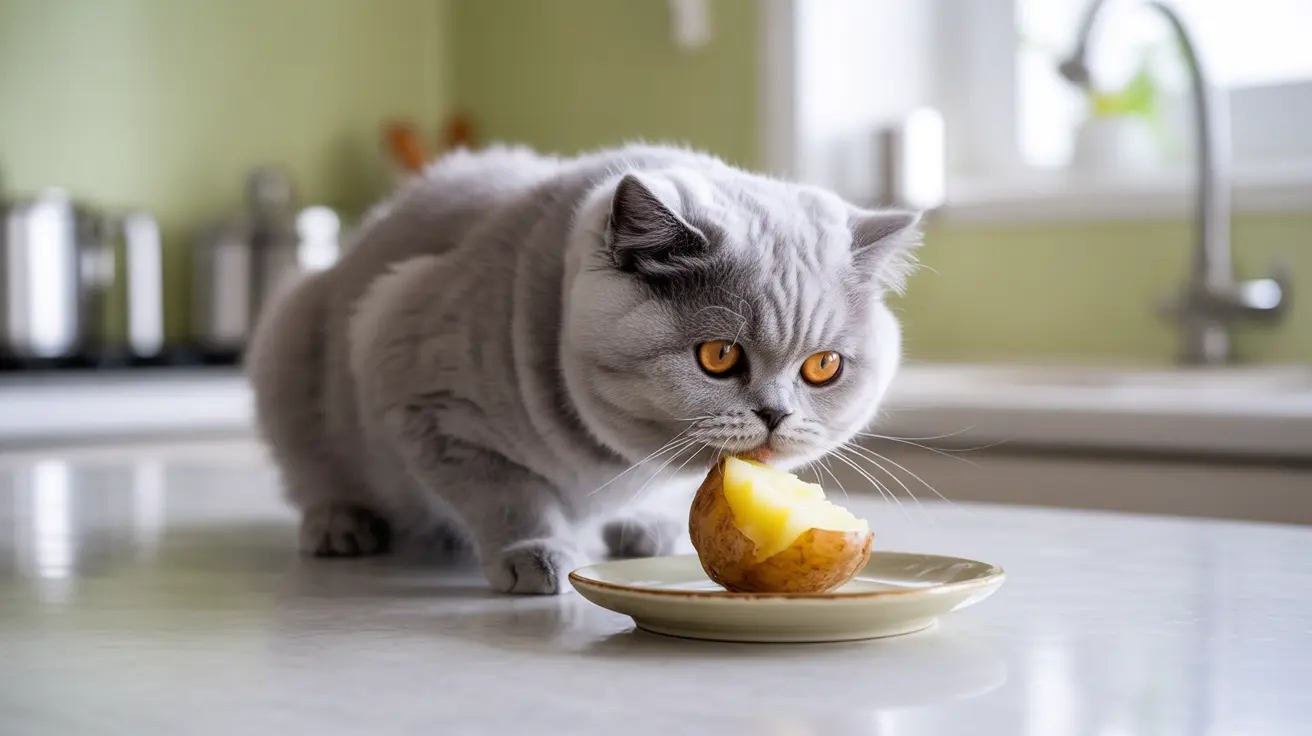Understanding Potatoes and Cat Nutrition
As cat owners, we often wonder about sharing human foods with our feline friends. When it comes to potatoes, the answer isn't as straightforward as you might think. While cats can technically eat certain forms of potato, the question "is potato good for cats" requires a deeper understanding of feline nutrition and potential risks.
Cats are obligate carnivores, meaning their bodies are designed to thrive on meat-based proteins. Unlike humans, they don't require carbohydrates from sources like potatoes for energy. This fundamental difference in nutritional needs makes potatoes, at best, an unnecessary addition to your cat's diet.
The Safety of Potatoes for Cats
When it comes to feeding potatoes to cats, safety concerns are paramount. While small amounts of plain, well-cooked potatoes are technically safe, several important factors must be considered:
Safe Forms of Potato
- Plain, peeled, and thoroughly cooked
- Boiled or baked (without seasonings)
- Small portions only (½-inch cube maximum)
Dangerous Forms to Avoid
- Raw potatoes (highly toxic)
- Potato skins (contain solanine)
- Green potatoes
- Seasoned or fried preparations
Health Risks and Toxicity Concerns
Raw potatoes and potato plants contain solanine, a toxic compound that can cause serious health issues in cats. Symptoms of potato toxicity include:
- Vomiting and diarrhea
- Lethargy and weakness
- Confusion and disorientation
- Neurological symptoms in severe cases
- Potential organ damage
Nutritional Value for Cats
While potatoes contain some nutrients like vitamin B6, potassium, and fiber, they offer minimal nutritional benefit to cats. Their high carbohydrate content can actually be detrimental to feline health, potentially leading to:
- Weight gain
- Digestive issues
- Imbalanced nutrition
- Displaced essential protein intake
Safe Feeding Guidelines
If you decide to offer your cat potato, follow these strict guidelines:
- Only serve plain, fully cooked potato
- Remove all skin and green parts
- Avoid seasonings, butter, or oils
- Limit to tiny portions as occasional treats
- Monitor for adverse reactions
Better Alternatives to Potatoes
Instead of potatoes, consider these cat-appropriate treats:
- Small pieces of cooked chicken or turkey
- Commercial cat treats
- Lean fish pieces
- Veterinarian-approved cat snacks
Frequently Asked Questions
Is it safe to feed my cat cooked potatoes, and how should they be prepared?
Plain, well-cooked potatoes without skin or seasonings are safe in very small amounts. They should be thoroughly cooked, peeled, and served in tiny portions (no larger than ½-inch cube) as an occasional treat only.
What are the risks if my cat eats raw potatoes or potato skins?
Raw potatoes and potato skins contain solanine, which is toxic to cats. Ingestion can cause severe symptoms including vomiting, diarrhea, lethargy, confusion, and potentially serious neurological issues. Immediate veterinary attention is necessary if your cat consumes these items.
Can potatoes provide any nutritional benefit to obligate carnivore cats?
No, potatoes offer minimal nutritional benefits to cats. As obligate carnivores, cats require nutrients from animal proteins, and potatoes' high carbohydrate content can actually interfere with proper nutrition.
How can I tell if my cat is experiencing potato poisoning and what should I do?
Signs of potato poisoning include vomiting, diarrhea, lethargy, confusion, and neurological symptoms. If you suspect potato poisoning, contact your veterinarian immediately for emergency care.
Are mashed potatoes or potato-based snacks like fries safe for cats to eat?
No, mashed potatoes and potato-based snacks typically contain unsafe ingredients like butter, salt, and seasonings. Additionally, fried potatoes are high in fat and can cause digestive issues or pancreatitis in cats.
Conclusion
While small amounts of plain, cooked potato won't likely harm your cat, they're not beneficial to feline health. As responsible pet owners, it's best to stick to species-appropriate foods and treats designed specifically for cats. If you're considering adding any human food to your cat's diet, always consult with your veterinarian first.






